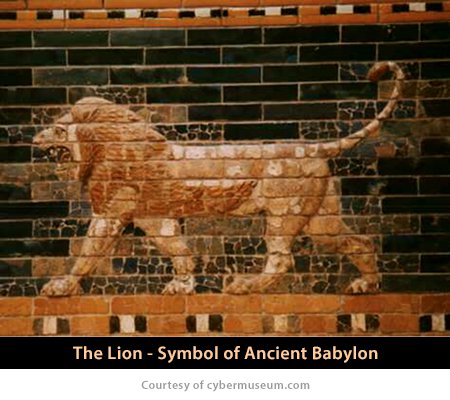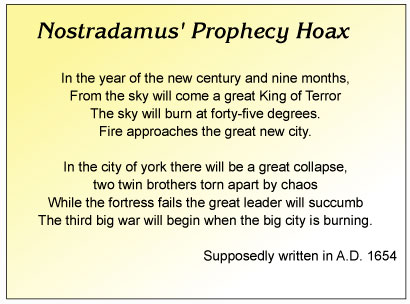A young woman was murdered on a farm and was buried in a barn. Those who missed the young woman assumed that she had left the town and was living somewhere else. The murder was not suspected and so went undiscovered. But the young woman’s mother started having dreams. It was always the same dream over and over again. Each time the dream told the mother to go and search this particular barn. Disturbed by the dream, the mother finally went and discovered her murdered daughter. The murderer was identified, went to trial, was sentenced and executed. Now, how did this happen? Where did the mother’s dream come from?
Nebuchadnezzar’s Dream
Nebuchadnezzar had a dream too! His dream was different. It was about a metal statue. The dream started when he started wondering about the future (Daniel 2:29). Night after night he had the same dream. He could no longer sleep. Finally, Nebuchadnezzar wanted to know the meaning of the dream. He must have sensed there was significance to his dream.
Now in the second year of the reign of Nebuchadnezzar, Nebuchadnezzar had dreams; and his spirit was troubled and his sleep left him. Daniel 2:1 (NASB)
Babylon was a glorious place according to ancient historians and from Isaiah we have this description,
. . . Babylon, the beauty of kingdoms, the glory of the Chaldeans’ pride . . . Isaiah 13:19 (NASB)
The ancient historian Herodotus said that Babylon was more magnificent than any city in the known world. Babylon was a place of beauty which featured one of the seven wonders of the ancient world – the Hanging Gardens. God had also given Nebuchadnezzar an empire greater than the Assyrian Empire. His empire was a military superpower. Was Nebuchadnezzar thinking about his fame, wealth, and military strength when he started worrying about his future?

All we know is that he wanted to know the future, and he called his team of wise men together to see if they knew the meaning of his dream. Only he did not know that he was calling on the wrong team of men.
Then the king gave orders to call in the magicians, the conjurers, the sorcerers and the Chaldeans, to tell the king his dreams. So they came in and stood before the king. Daniel 2:2 (NASB)
The Wise Men
These men were educated in the Laws of Hammurabi, the Assyrian Dream Book, astrology, mathematics, economics, and religious literature. They maintained a record of the economic trends of the empire in the Chronicles of the Market Places. Babylon also had a vast library of knowledge, which archaeology has uncovered. As a result, it is not surprising that the Babylonian dynasty was called the “Master of Wisdom” (Wiseman, D. J. Nebuchadnezzar and Babylon, The British Academy. 1983. p. 86.). Today, some assume that a man or woman with educational degrees is intellectually brilliant.
But that is not necessarily true, as we are going to see in just a minute. In many cases it just means that they have completed a course of study as a result of hard work. Nebuchadnezzar, frustrated and wanting to sleep, finally called for the wise men.
And the king said to them, “I had a dream, and my spirit is anxious to understand the dream.” Daniel 2:3 (NASB)
The wise men reacted as most of us would. They asked the king to tell them the dream.
Then the Chaldeans spoke to the king in Aramaic: “O king, live forever! Tell the dream to your servants, and we will declare the interpretation.” Daniel 2:4 (NASB)
Nebuchadnezzar’s magicians, the conjurers, sorcerers and Chaldeans are surprised when he uses the old carrot and stick routine. He threatens them with punishment and then tries to motivate them with rewards.
The king answered and said to the Chaldeans, “The command from me is firm: if you do not make known to me the dream and its interpretation, you will be torn limb from limb, and your houses will be made a rubbish heap. “But if you declare the dream and its interpretation, you will receive from me gifts and a reward and great honor; therefore declare to me the dream and its interpretation.” Daniel 2:5-6 (NASB)
The king doubted their ability to honestly interpret his dream. That may be the reason he waited so long to take his dream to them. Ancient historians state that mistakes were made in divination just as in medicine. Cicero said there was error, superstition, and fraud in divination. A historian writes that Sennacherib separated some diviners into groups in order to determine if their report was truthful (Oppenheim. Ancient Mesopotamia. Univ. of Chicago Press. 1983). Nebuchadnezzar must have been disappointed before with bad information from his wise men too!

The False Prophets
In recent years, Nostradamus, a sixteenth century medical doctor, has been hailed as a great modern day prophet. Books have been written about his prophecies. The media has featured him. But many are not aware that most of his supporters disagree about the interpretations of his prophecies. In fact, the majority of his supporters agree that he is accurate less than 50 percent of the time. His prophecies are referred to as “quatrains” and were written in French. Among his supporters, less than 10 percent agree upon the meaning of the quatrains and less than 6 percent agree that any have been fulfilled. The symbolism in Nostradamus’ quatrains has to be tweaked to make them “prophetic.” God has said the test of a true prophet is that he is never wrong (Deuteronomy 18:20-22). This means that Nostradamus is not a true prophet. When we come to the book of Daniel, we do not need to tweak them. Daniel is a true prophet of God.
Only The Gods
But the magicians, conjurers, sorcerers and Chaldeans insist the dream be shared.
They answered a second time and said, “Let the king tell the dream to his servants, and we will declare the interpretation.” The king answered and said, “I know for certain that you are bargaining for time, inasmuch as you have seen that the command from me is firm, that if you do not make the dream known to me, there is only one decree for you. For you have agreed together to speak lying and corrupt words before me until the situation is changed; therefore tell me the dream, that I may know that you can declare to me its interpretation.” The Chaldeans answered the king and said, “There is not a man on earth who could declare the matter for the king, inasmuch as no great king or ruler has ever asked anything like this of any magician, conjurer or Chaldean. Moreover, the thing which the king demands is difficult, and there is no one else who could declare it to the king except gods, whose dwelling place is not with mortal flesh.” Daniel 2:7-11 (NASB)
But Nebuchadnezzar did not trust them. He explained that if they could reveal his dream then he would believe they could interpret his dream. The Chaldeans tried to escape. In the past they had pretended to be something they were not. Now they were trapped and Nebuchadnezzar responded in anger and ordered them to be killed.
Because of this the king became indignant and very furious, and gave orders to destroy all the wise men of Babylon. So the decree went forth that the wise men should be slain; and they looked for Daniel and his friends to kill them. Daniel 2:12-13 (NASB)
He was not only disappointed with them – he had lost faith in his wise men. So why keep them?
Compassionate Prophet
Apparently, Daniel and his friends were not allowed to come before the king, since this was their first year in the king’s personal service (Daniel 1:19). This would have been their internship year. When Daniel the prophet learned what had happened and of the order to kill the wise men which included himself and his friends, he had compassion not just for the lives of his friends but for the unbelieving wise men too! Daniel felt compassion for men who were involved in the occult and pagan worship. What a lesson for us! God calls us to love even those who disagree with us religiously. Daniel did! Daniel responded by asking to speak to the king.
Then Daniel replied with discretion and discernment to Arioch, the captain of the king’s bodyguard, who had gone forth to slay the wise men of Babylon; he answered and said to Arioch, the king’s commander, “For what reason is the decree from the king so urgent?” Then Arioch informed Daniel about the matter. So Daniel went in and requested of the king that he would give him time, in order that he might declare the interpretation to the king. Daniel 2:14-16 (NASB)
The Lord granted Daniel favor with the king and he was given time to discover the dream and to interpret it. So Daniel left and returned to his friends and they asked God for help.
Then Daniel went to his house and informed his friends, Hananiah, Mishael and Azariah, about the matter, in order that they might request compassion from the God of heaven concerning this mystery, so that Daniel and his friends might not be destroyed with the rest of the wise men of Babylon. Then the mystery was revealed to Daniel in a night vision. Then Daniel blessed the God of heaven; Daniel answered and said, “Let the name of God be blessed forever and ever, For wisdom and power belong to Him. And it is He who changes the times and the epochs; He removes kings and establishes kings; He gives wisdom to wise men, And knowledge to men of understanding. It is He who reveals the profound and hidden things; He knows what is in the darkness, And the light dwells with Him. To Thee, O God of my fathers, I give thanks and praise, For Thou hast given me wisdom and power; Even now Thou hast made known to me what we requested of Thee, For Thou hast made known to us the king’s matter.” Daniel 2:17-23 (NASB)
God was merciful and revealed the dream and its interpretation to Daniel. How did Daniel respond? Daniel understood that he did not do it. He understood that God did not need to reveal the dream nor its interpretation. Daniel was thankful! It is great lesson for us. How often do we take pride in what God has done through us? Daniel did not! He gave the credit to God in his prayer.
I Am Important
Daniel was now ready to go to the king, but he must go through Arioch.
Therefore, Daniel went in to Arioch, whom the king had appointed to destroy the wise men of Babylon; he went and spoke to him as follows: “Do not destroy the wise men of Babylon! Take me into the king’s presence, and I will declare the interpretation to the king.” Then Arioch hurriedly brought Daniel into the king’s presence and spoke to him as follows: “I have found a man among the exiles from Judah who can make the interpretation known to the king!” Daniel 2:24-25 (NASB)
Arioch was not like Daniel. He told the king that he – Arioch – had discovered someone who could reveal the dream. Arioch must not have been present when Nebuchadnezzar met with Daniel the first time. Arioch wanted the king to believe that he, Arioch, was needed and valuable. Arioch wanted the king’s favor so he took credit for something he did not do. He disgraced himself. Has that ever happened to you – someone takes credit for something you did? How did it make you feel? Most of us would become angry. We would say it is not fair. But God calls us to not seek credit.
Humble yourselves, therefore, under the mighty hand of God, that He may exalt you at the proper time . . . 1 Peter 5:6 (NASB)
It is a great reminder that we need to give credit to others and not seek it for ourselves, even when we think we deserve it. This is called self-sacrifice.
Daniel’s response was wonderful. He started by reminding the king of his request and the failure of his wise men.
The king answered and said to Daniel, whose name was Belteshazzar, “Are you able to make known to me the dream which I have seen and its interpretation?” Daniel answered before the king and said, “As for the mystery about which the king has inquired, neither wise men, conjurers, magicians, nor diviners are able to declare it to the king.” Daniel 2:26-27 (NASB)
But Daniel did not do this to gain favor with the king. He was preparing the king to meet the one true God.
However, there is a God in heaven who reveals mysteries, and He has made known to King Nebuchadnezzar what will take place in the latter days. This was your dream and the visions in your mind while on your bed. As for you, O king, while on your bed your thoughts turned to what would take place in the future; and He who reveals mysteries has made known to you what will take place. But as for me, this mystery has not been revealed to me for any wisdom residing in me more than in any other living man, but for the purpose of making the interpretation known to the king, and that you may understand the thoughts of your mind. Daniel 2:28-30

Conclusion
To whom did Daniel give credit? Before Daniel shared the dream, he gave all the credit away. Daniel did not want to take credit for something someone else – God – had done through him. What a contrast! Arioch wanted credit in order to gain favor, and Daniel gave it all away to God.
When you teach, preach, serve, lead, or minister in the church in different ways, what motivates you? Do you want to draw others to yourself or to God? In the gospel of John, Jesus describes Himself as the Good Shepherd and then describes a thief or a robber when He says,
He who is a hireling, and not a shepherd . . . leaves the sheep, and flees, and the wolf snatches them, and scatters them. He flees because he is . . . not concerned about the sheep. John 10:12-13 (NASB)
The thief or robber comes to get for himself or herself and does not care for the people in the church. They only care for themselves. That is why they run. Jesus is trying to make the point that He cares for us. He has described good shepherds and those who are not. When you minister, do you seek to draw credit away from God and to yourself? Are you a thief or a robber? Do you steal the credit that belongs to God and seek to draw others to yourself and not to God? If so, you are a robber! God does not want men and women who are in the ministry for themselves – robbers. He wants those who will sacrifice themselves for Him. Men and women who will deny themselves and draw others to Him. He wants Daniels!